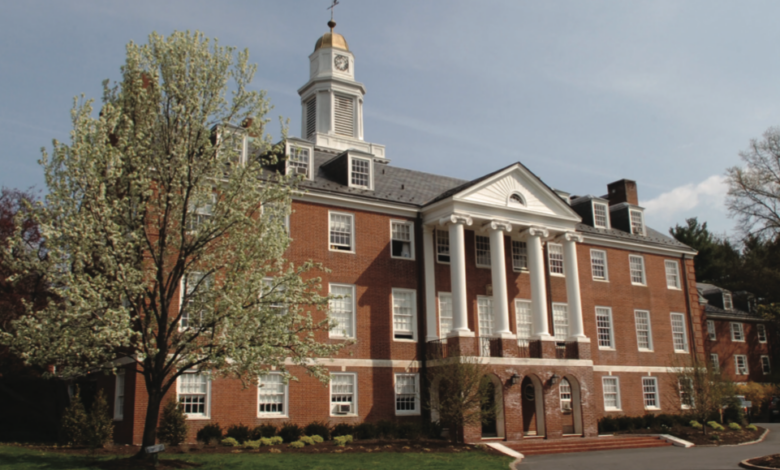
Waning Westminster enrollment poses cause for concern
By Kaitlyn McCormick
Plighted by a global pandemic that altered the trends of higher education and a contentious switch in locations, Westminster Choir College (WCC) has finally begun to settle into its new Lawrenceville home, but a downward trend in enrollment that precursed the pandemic still causes concern.
According to WCC fall semester enrollment data, provided by Vice President of Enrollment Management Drew Aromando, the total number of students has been on a steady decline with a noticeable drop starting around 2017.
Between 2016 and 2017, the total number of WCC students, including those enrolled part time and full time at the graduate and undergraduate levels, fell from 438 to 414 after fluctuating mostly between the 400 to 500 student range since 1995. Prior to 2018, when total enrollment dropped to 322 students, the category hadn’t seen the 300s since 1994.
More pertinent was the drop in freshmen enrollment. Between the years 2016 and 2017, full- time freshmen enrollment dropped from 72 to 58 students, a harsh jump following a steady decrease.
Now, according to university statistics, the WCC fall 2022 enrollment consists of only 18 full-time freshmen.
College of Arts and Sciences Associate Dean Jason Vodicka said WCC has been working closely with Rider’s admissions department to appeal to prospective students after operating on a new campus.
“It’s been a learning process on both sides for admissions to find out a little bit more about what makes a serious music student unique and what types of things students are looking for when looking for a conservatory style education,” Vodicka said.
As WCC adapts to the Lawrenceville scene after residing on its own Princeton campus since 1932, utilizing and tag teaming with Rider’s enrollment and recruitment practices will hopefully create a stronger strategy to entice new students to the choir college.
“The curriculum, the faculty, the community, that’s all still here. It’s just communicating both that we are here, we’re unique, but we’re also an integral part of the larger university,” Vodicka said.
While WCC continues to make its stake in Lawrenceville and intermingle with the greater Rider community, some still express concern for the fate of the school: Professor of composition and music theory Joel Phillips is one of them.
While Phillips did acknowledge growth in certain aspects of the school, he caveated the sentiment by pointing out areas where the college is still underperforming.
“There is growth in the online master of vocal performance,” he explained, estimating around 80 students enrolled.
However, the college, striving to hold onto its global reverence, still finds itself unable to perform at the level it once did due to the staggering drop in enrollment.
“What Westminster was famous for, is its middle name: choir,” Phillips said. “We no longer can fill the choir to serve the New York Philharmonic, the Philadelphia Orchestra, or any of the world class orchestras that come to America and used and recorded with the Westminster Choir. …We can barely fill the choir at all at this point.”
In terms of enrollment, Phillips claims that decisions from higher-ups have made it “virtually impossible” to recruit students, especially considering recent program eliminations in which 25 courses were announced to be eliminated or archived, including a number of WCC undergraduate and graduate programs, in addition to the very public legal proceedings resulting from Rider’s attempts to sell the Princeton campus.
On Oct. 31, Rider Provost DonnaJean Fredeen announced anticipated layoffs for adjunct professors as the latest measure in the university’s prioritization and optimization procedures, including the list of archived and eliminated programs.
“This work is currently ongoing and decisions will be driven largely by enrollment,” Fredeen’s statement read.
According to Phillips, one adjunct professor in his department received notice of layoff.
“I wish I could say I’m surprised in the least,” Phillips said.
As the university moves to continue its prioritization process, including WCC programs, waning enrollment numbers pose a realistic concern for the future of the college.


